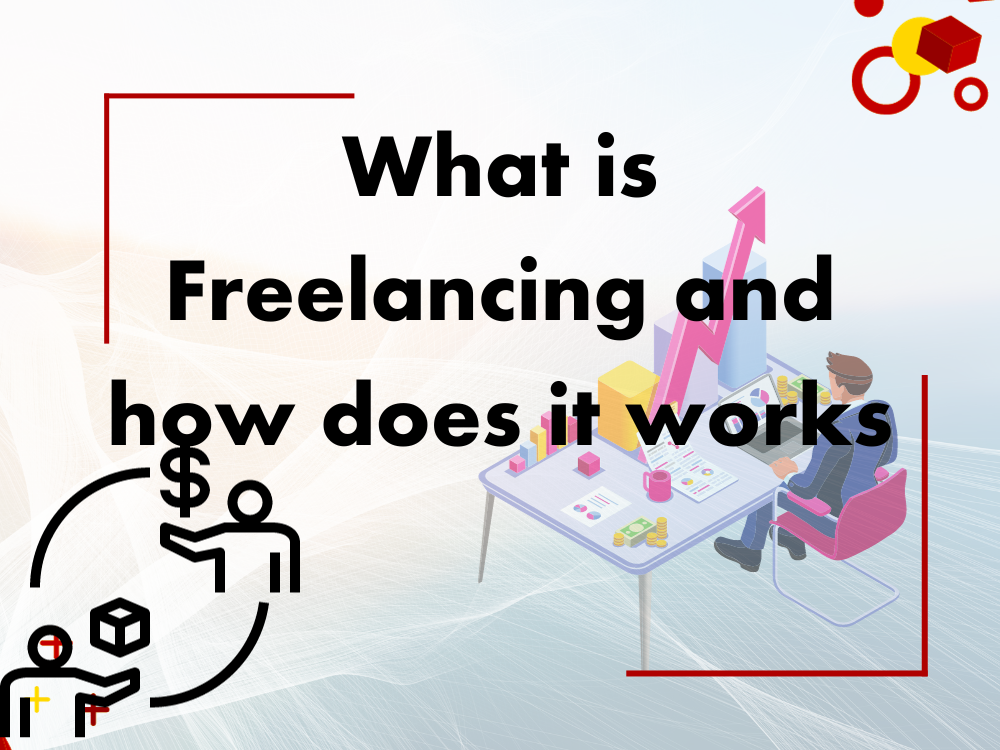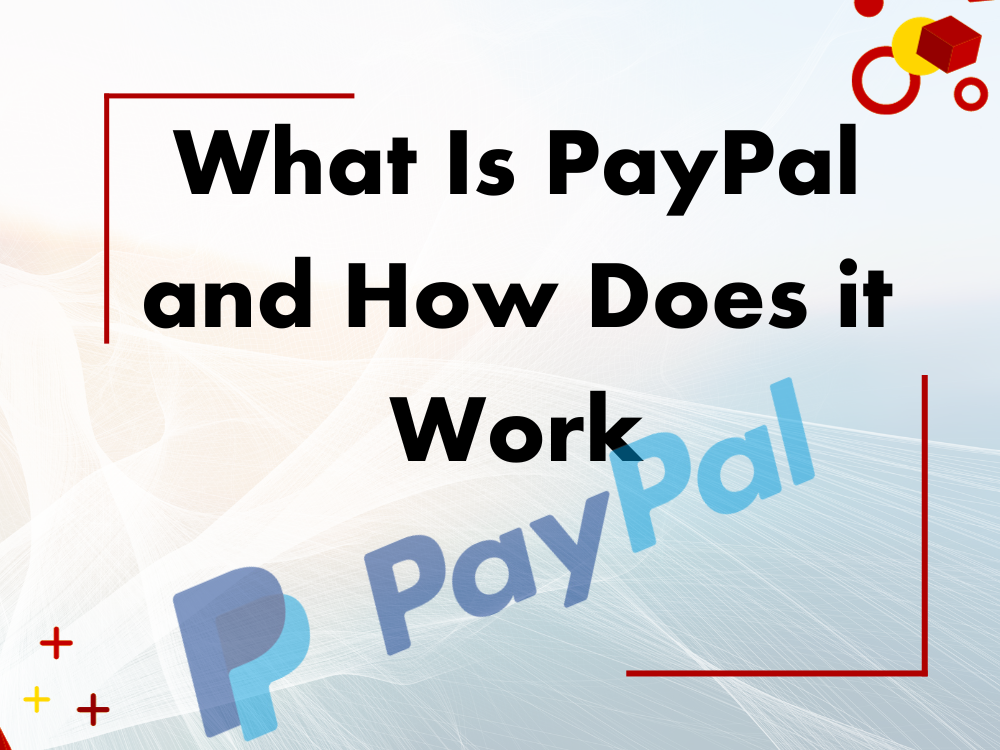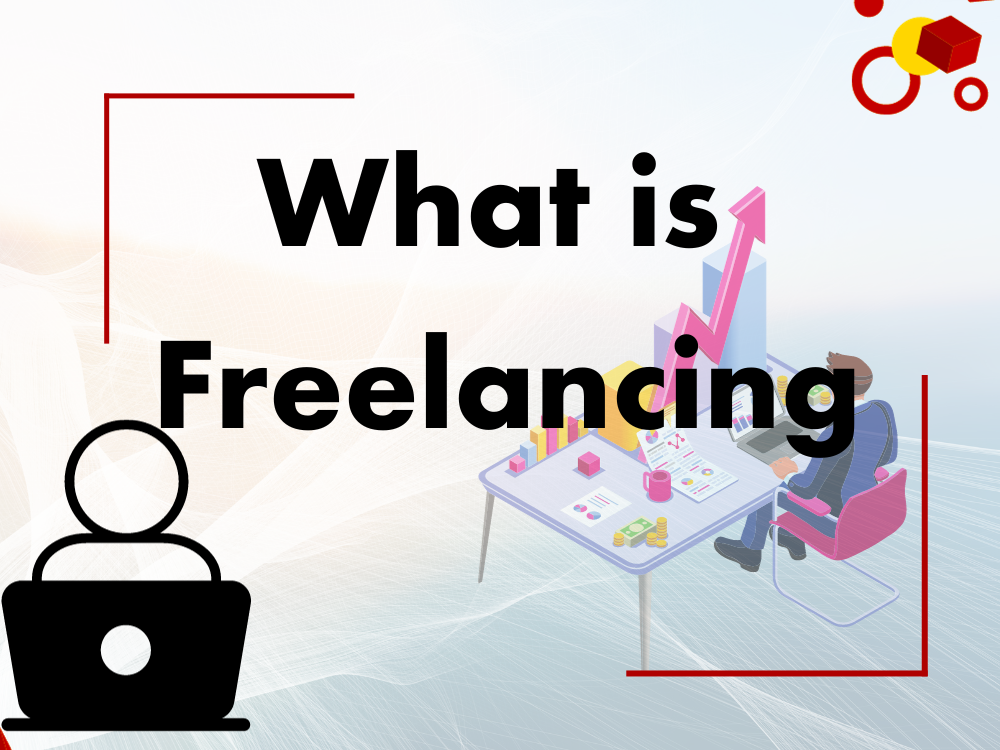Welcome to the world of the solopreneur!

Whether you’re driven by a dream to work for yourself or the desire for more flexibility, it’s worth remembering that the freelance life comes with both awesome benefits (looking at you, #breakfastinbed) and a few tasks.
Read on to learn all there is to know about becoming a freelancer and what you can expect after making the switch.
Ø What is freelancing?
Freelancing is a type of self-employment. Instead of being employed by a company, freelancers are likely to work as self-employed, delivering their services on a contract or task basis.
Companies of all types and sizes can hire freelancers to complete a project or a task, but freelancers are responsible for paying their duties, health insurance, pension, and other personal contributions.
Since they work for themselves, freelancers must also cover their own holiday costs and sick pay. At the same time, self-employed experts can set their working hours and make working schedules that fit their lifestyle – either working remotely or from their clients’ offices. There are many different types of freelancers, but they tend to be knowledge workers who possess a high level of skills and knowledge in a certain area, such as designers, writers, programmers, translators, project managers, and so on.
There is, however, another group of self-employed professionals that often get classed as ‘gig workers’ (Fiverr) or ‘contractors.’ Self-employed handymen, cleaners, construction workers, and drivers would fall into this class.
The most distinct difference between freelancers and gig workers is that the former tend to rely on the internet to deliver their work.
How does freelancing work?

Setting up as a freelancer is a little bit like setting up your own business.
While every country has its laws and types of business structures available for freelancers, the key factors to consider remain the same irrespective of where you live or work. So, are you interested in freelancing?
Then here’s what to consider when setting up as a freelancer:
Ø Type of legal entity to work under | To start working as a freelancer (that is, officially), you’ll need to register your business with the local government.
Keep in mind that the legal entity you choose (e.g. Sole Proprietorship, Limited Liability Company) will impact the amount of taxes you have to pay, your liability, and the amount of paperwork required — not something that should be brushed away carelessly!
Ø Paying taxes (invoicing, charges, duty returns, etc.) | Once you register your business, you’ll be fairly needed to file duty returns and pay taxes.
Putting a robust invoicing and expenditure-shadowing system in place from day one can help you from plunging into complete chaos at the end of fiscal time.
Ø Choosing an insurance policy for freelancers | Indeed if you go freelance, you should be able to enjoy the same security and peace of mind that you get when working for a company.
It’s worth allowing freelancers to pay for special health, business, or income insurance for freelancers to cover themselves for the unanticipated.
Ø Opening a business account | In numerous cases, freelancers don’t need to open a bank account but must do it anyway.
Being suitable to separate particular and business finances makes it significantly easier to claim charges and work out the business profit at the end of the fiscal time.
Ø Building a customer list | erecting a customer list previous to going freelance is a great way of getting enough work during the quiet times of the time.
Plus, as numerous freelancers will swear, there’s no better way of flashing your services than getting a customer referral.
Ø Drafting your freelance contract | A freelance contract is a legal document you and your customer should subscribe to before starting any work on a new design.
What may feel like a boring formality at first, is your stylish way of guarding yourself against remittent, liability, and implicit legal troubles. There are numerous freelance contract templates available online that you can download for free and acclimatize to your business.
ª What are the advantages of being a freelancer?
With the number of freelancers on the rise time on time, numerous describe the decision to go freelance as life-changing. There are many of the generally touted advantages to quitting the standard 9- to 5 jobs and getting a freelancer.
ª Flexibility to decide how, when, and where to work
One of the biggest gratuities of being your own master is that you don’t have to ask for anyone’s authorization to work from home, start late, or work while you travel.
You decide your business hours and you choose where to work. If that means taking Wednesdays off to visit your grandma or working late into the night and sleeping until noon – so be it!
ª Choosing your CLIENTS
Once your business is running easily, you’ll also have the freedom to choose the guests you want to work with.
And that’s an awful feeling! Whenever you feel like you don’t snare with the customer’s personality, or don’t like someone’s station or payment terms, you can shift your energy to chancing a new gig rather than fighting constant battles with the customer.
ª Keeping all the Profits
One of the stylish effects of working as a freelancer is that you can see a direct link between working hard and your account balance. Since you keep all the after-duty gains, it’s also over to you to decide how you want to allocate and spend the plutocrats.
ª What are the disadvantages of being a freelancer?
What do freelancers do when the effects don’t go as planned? That brings us to the challenges of running a freelance business.
It’s important to be apprehensive of some of the lower favorable situations you could face if you decide to become a freelancer so that you can prepare yourself and take the necessary way to avoid anything dampening your freelance experience.
ª You’re enough much on your own | Whenever you run into issues with guests, admit a complaint, or face a remittent, there’s no legal or HR support to turn to – and resolving these issues on your own can be draining at times.
The stylish way to reduce the impact of these issues is to subscribe to a freelance contract before engaging with a new customer or getting freelancer insurance. Joining a freelancers’ union can also be a great way to pierce outside support and helpful coffers.
ª It can be a lonely world | still, and it can get lonely veritably snappily If you work from home all the time and have little commerce with the outside world.
People tend to have the hardest time when they’re facing business challenges and have to shoulder all the responsibility alone. To overcome these negative passions, further and further freelancers are joining co-working spaces in their area, which are (generally) affordably priced, participating workspaces allowing freelancers to escape insulation, and separate their home life from work life.
Networking groups are another way for freelancers to meet like-inclined people from varying moxie situations, offering the occasion to learn, partake, and produce new business connections.
ª Irregular payments
Unless you manage to secure recreating yearly profit, locking in regular payments can be a challenge. Your yearly income will depend entirely on the quantum of work you manage to do as well as on the goodwill of your guests!
Conclusion
Freelancing is a skill, like learning to play chess or makeup. The more you exercise it and polish your ways, the better you get at it.
However, know that it’s normal if you’re considering going freelance and it seems a little scary. Rather than staying for the right( or let’s be honest, perfect) time for making the vault, concentrate on doing your schoolwork and sorting out the way to a great launch – make your customer list beforehand, take out insurance, open a business account and step into the world of freelancing.
There’s no caching from it – you’ll have to work hard to be great at it but once the advance happens, the lucre will be oh-so-sweet!










